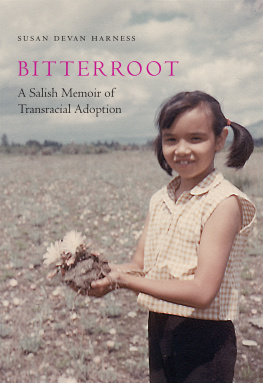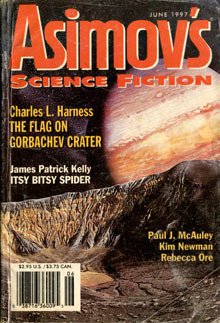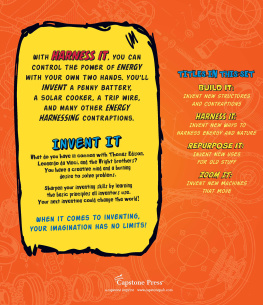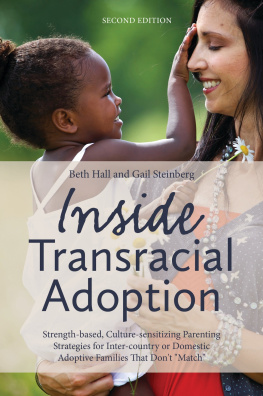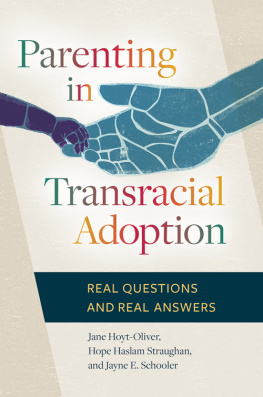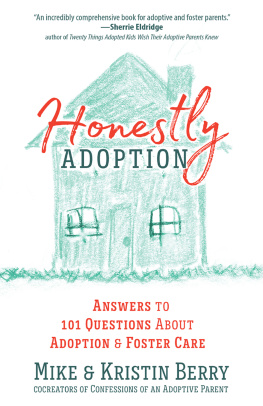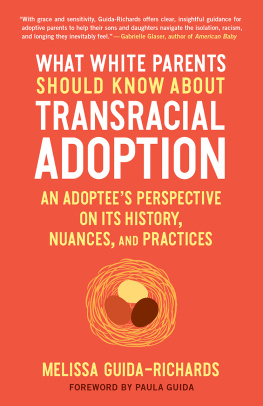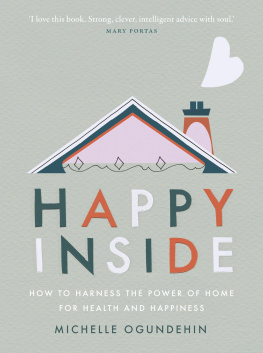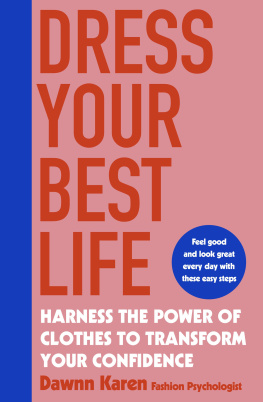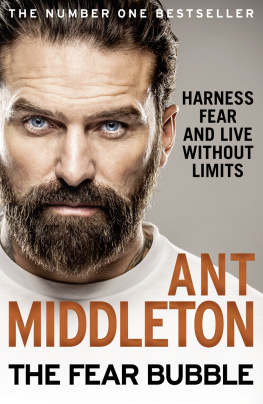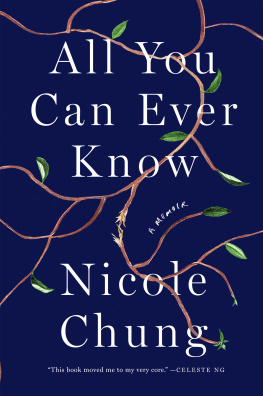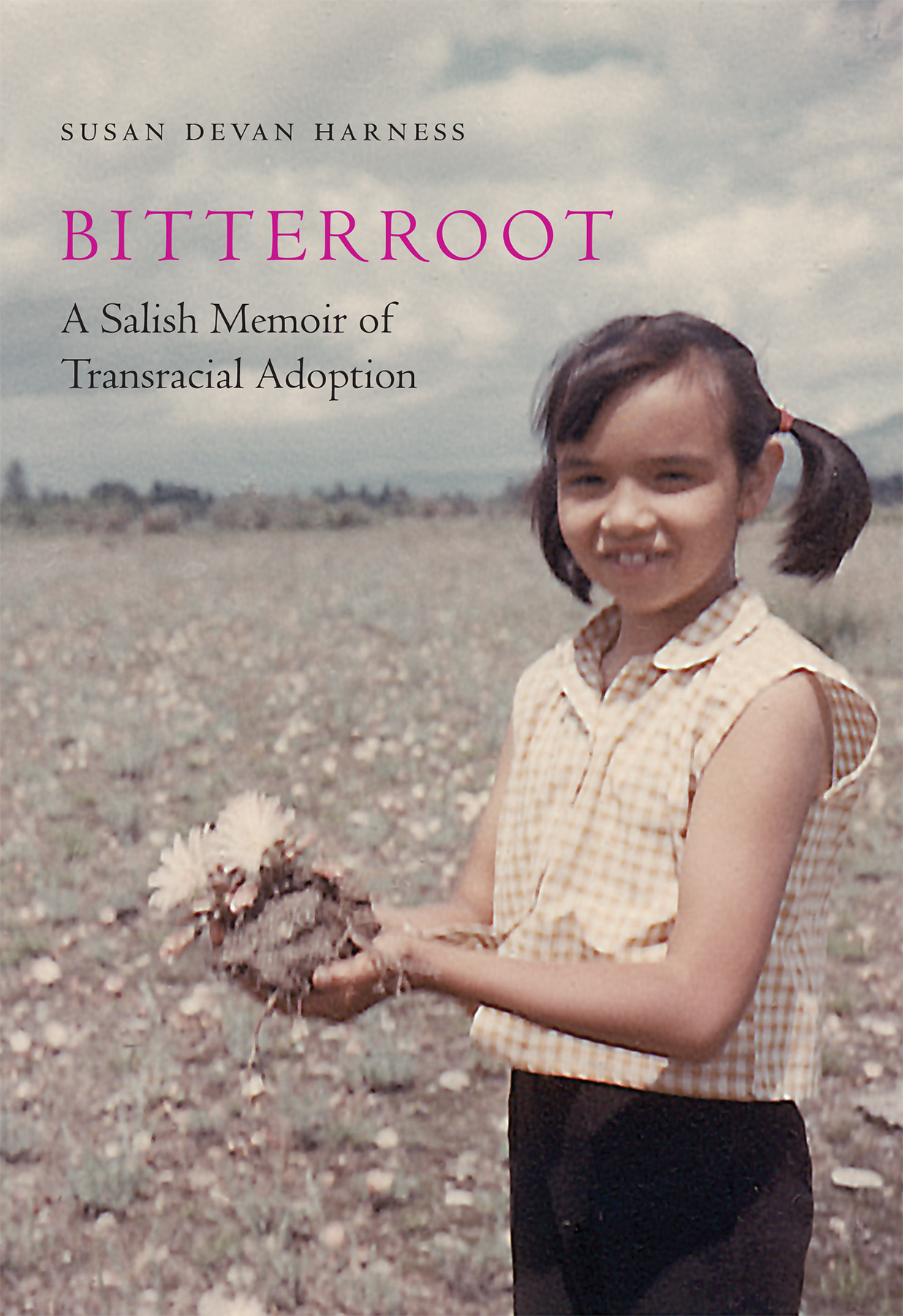One Salish-Kootenai womans journey, this memoir is a heart-wrenching story of finding family and herself, and of a particularly horrific time in Native history. It is a strong and well-told narrative of adoption, survival, resilience, and is truthfully revealed.
Luana Ross (Bitterroot Salish), codirector of Native Voices Documentary Film at the University of Washington and author of Inventing the Savage
A page-turner of a memoir that illuminates a great historical injustice. With wit and a sturdy heart, Susan Harness plumbs her own and the American Wests uneasy past to shed the burden of living in between and find wholeness. A compelling and moving story.
Brenda J. Child
R. David Edmunds
K. Tsianina Lomawaima
Bitterroot
A Salish Memoir of Transracial Adoption
Susan Devan Harness
University of Nebraska Press | Lincoln and London
2018 by the Board of Regents of the University of Nebraska
Portions of chapter 14 originally appeared in Mixing Cultural Identities through Transracial Adoption: Outcomes of the Indian Adoption Project (19581967) (New York: Mellen, 2009). Used with permission.
Bad Wine is reprinted from Victor Charlo, Put Sey (Good Enough) (Kalispell MT : Many Voices, 2008). Used with permission.
Cover designed by University of Nebraska Press; cover image courtesy of the author.
Author photo Rick Harness.
All rights reserved
Library of Congress Cataloging-in-Publication Data
Names: Harness, Susan Devan, author.
Title: Bitterroot: a Salish memoir of transracial adoption / Susan Devan Harness.
Other titles: Salish memoir of transracial adoption
Description: Lincoln: University of Nebraska Press, [2018] | Series: American Indian lives
Identifiers: LCCN 2017056173
ISBN 9781496207463 (cloth: alk. paper)
ISBN 9781496210869 (epub)
ISBN 9781496210876 (mobi)
ISBN 9781496210883 (pdf)
Subjects: LCSH : Harness, Susan Devan. | Salish IndiansBiography. | Indian womenMontanaBiography. | Adopted childrenWest (U.S.)Biography. | Interracial adoptionMontana. | Salish IndiansSocial life and customs. | Flathead Indian Reservation (Mont.)Biography. | Women anthropologistsWest (U.S.)Biography. | Adult children of alcoholicsWest (U.S.)Biography. | WomenMontanaBiography.
Classification: LCC E 99. S 2 H 37 2018 | DDC 978.6004/9794350092 [B]dc23
LC record available at https://lccn.loc.gov/2017056173
This is a work of nonfiction. Some names and identifying details have been changed.
The publisher does not have any control over and does not assume any responsibility for author or third-party websites or their content.
To Vern, Ronni Marie, and James Allen
And to all my families
Contents
As much as our culture would like us to believe otherwise, our social world is not dichotomous. There is no right/wrong, good/bad, even/or, black/white, or, in my case, white/red. These concepts define the edges of a continuum filled with many ideas and perspectives far more descriptive of who we are and what we do. To accept the dichotomy means we dont have to be uncomfortable or experience the pain brought about by examination. But if we explore that space in between the defined concepts, if we rub those ideas between our fingers and bring that scent to our nose, we are changed. If we close our eyes and listen to the stories and think about the hues and textures of a lived life, we grow to know the perspectives of others, which leads us to understand and, eventually, accept ourselves.
This book is not just about me. It is also about the people whose lives intertwined with my life, thereby defining it, shaping it, and teaching me to wholly and unapologetically accept it. I have so many to thank for their additions to this work. I apologize to the number of people I am unable to detail here for their invaluable stories and their research.
First, thank you, Dr. Matthew Bokovoy, my editor at University of Nebraska Press, for seeing this project as an important addition to the literature and conversations about and by American Indians, regarding our history and our contemporary lives. Also, thank you, Susan Silver, copyeditor extraordinaire! Your expertise polished my prose, for which I am grateful. John Calderazzo, thank you for being interested in the story from our first conversation. Your support, your instruction, and your questions made this a strong and beautiful manuscript. Swapping stories of our lives made me a better storyteller.
Kate Browne, Debby Thompson, Dan Beachy-Quick, Felicia Zamora, and Maria Haenga-Collins, your insight, careful readings, and thoughtful suggestions required me to write at a depth Id not experienced before. It has been an amazing experience working and conversing with you, and Ive learned so much. Your guidance has helped me give so much to others. Maylinn Smith, your knowledge about American Indian law and history was invaluable. And Gyda Swaney, your knowledge about life and the intensity of what it means to be us was not only much appreciated but needed. Thank you all for your support in helping me get this story told in so many different ways.
Christie Riebe, you gave me so many gifts: your perspective as an adoptive parent, your friendship, and your much-needed editing skills! Your eye for detail and your ear for a well-told, coherent story helped to make this a highly polished book. Thank you so much.
Family seems like a pretty defined word, until adoption is involved. Then it becomes more convoluted, more expansive, and, in my case, more foundational to who I am. To Mom and Vic, simply put, I wouldnt be here without you both. Vic, I miss you because I wish Id been able to know you better; Mom, I miss you because you were the best gift Ive ever received.
My family on the Flathead Indian Reservation was key in the writing of this book. Albert and Delphine Plant, your unquestioned acceptance of me turned my world around. You are kind, generous, and so very thoughtful and have helped me in any way I have asked. I treasure you. Ronni Marie, your story was the reason I began to explore this path of our lives all those years ago. I thank you so much for sharing those pieces of you with those pieces of me. James Allen, your kindness of spirit and generosity of self are what I admire most in you. Its too bad we met at Vics funeral, but sometimes I think that is what funerals are fora reconnection of all those lost parts of us, as family. Vern, thank you so much for sharing your life and your lived experiences of what it means not to be adopted. You gave me a much-needed perspective. I respect and admire you for so many things but most of all for just being you. I love you all so very, very much and am grateful for the time you spent with me as we shared our pain, our blessings, and hopefully a better sense of who we are in this entity called family.

